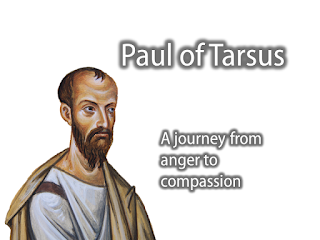Special Session Meeting Saturday, January 21, 2017
Rev. Scott outlined the priorities that Session needs to implement to raise the odds of
success. Rev. Scott has prearranged a structure to facilitate the discussion. A review “Worship Wars” Chapter 6 was used as a preamble to the planned workshop. The workshop was arranged in 7 stations. Groups of three were rotated through the stations leaving notes on what was important for St. Andrews. The next section defines each station and some salient points discovered by Elders. Don Paddock to transcribe comments from workshop to a digital copy and transmit to Elders – as available.
Re-engaging (revitalization) - renewed insight, interest and involvement.
“How to get the Useful Feedback from your Congregation”
1. Ask everyone a little
2. Ask select people more
3. Ask Leaders even more
4. Ask yourself and God
https://www.worshiptraining.com/module-1/how-to-get-useful-feedback-from-your-congregation/
• Gathering and communication of information is an important component – debated use of questionnaire
• Deacon/Elders need to poll their districts to understand why families are leaving
• Deacons/Elders to receive a scripted narrative to ask families in district
• Meeting w/families is the top priority but phone calls are useful for those who do not want to meet
• Ask the tough question why do you not come to worship anymore?
• Is it issues of transportation?
• Define what an engaging worship service is?
• The idea that passive worship may miss the idea that people want to be involved - that other people talking is just as important as the Minister.
• Session initiative – “Elders have agreed to visit as many families as possible between now and March 31st in their Districts.” Agreed to by consent. See scripted dialogue sheet in other sections. This is a critical communication of the changes envisioned here today.
· Critical we have a follow-up meeting to ensure we move forward with the entire plan. Suggestion that the further meetings occur on a week-night to make attending easier? Not for all though.
• Scripted narrative & receival of updated Elder/Deacon teams need to be in place a.s.a.p.
dialogue is important
• Must establish trust and open communication channels to all
• Session needs to gather trends and reasons for reasons families are leaving w/out names to ensure privacy
Outreach - is defined as reaching out to others, or becoming involved in a community or effort. When an organization reaches out to citizens in a community to help them find food and shelter, this is an example of outreach.
• Getting communications to Committees – every committee has a representative @ Session however, there are gaps evident
• Possibility of opening the gym to the community – volleyball, floor hockey etc.
• Welcome wagon like response to the
condos being built next door – welcoming event for neighbours, BBQ fellowship, and family nights for Hespeler Village Core
- Important to reach out to inside the congregation - focus needs to be on both internal and external in an ongoing basis.
• Get Mission and Outreach Committee onside for all of the above
Communication - Human communication has the goal to invite another human being to feel something new or better, understand something or someone new or better, take a new or better position, develop new and better relationships, and make new or better decisions for the future.
• Need to always welcome those that worship with us. – “language is important”
• Need to understand that the way families feel about being part of the community (how they are vitalized by their role(s) in the church)
• Important- to have face-to-face conversations on significant issues with the congregation. Maybe, use a paper scripted dialogue that can be delivered and arrange to meet a week later to discuss. Alternative – member could anonymously drop filled script back to Office?
• Important- to communicate this workshop and share our discoveries
· In lieu of a face-to-face how can we dialogue with those that do not want to be
reached?
· How can we develop a continually effective communication strategy?
Christen Education - Christian Education Ministry involves the administration and coordination of programs or strategies to facilitate the spiritual growth or discipleship of believers into Christ-likeness.
· Deacons need to be informed, trained, and ready to act where required. They need resources and how to find them.
· Elder/Deacon orientation and printed hand-book needed to ensure understanding of role.
· Re-introduction of care group for Ministers spiritual and pastoral care. Perhaps, informal meetings to support Minister. Careful not to introduce more work for Rev. Scott.
· Critical to have current District Lists for both Deacons & Elders. Ensure the stricture is in place for March 31 deadline for Elder/Deacon teams to talk to all on their list.
Care – both pastoral care and spiritual care. "Pastoral care" is both encouraging their local congregation and bringing new people into the church. That is not to say that the congregation is not to be involved in both activities, but the pastor should be the initiator. “Spiritual Care” recognizes and responds to the needs of the human spirit when faced with trauma, ill health or sadness and can include the need for meaning, for self-worth, to express oneself, for faith support, perhaps for rites or prayer or sacrament, or simply for a sensitive listener.
· Time restraints – no information recorded
Worship Space - Most of our sanctuaries were built more than a few generations ago. Since architects at the turn of the century could not possibly anticipate how we would view worships today, the worship space they designed often conflicts with our worship today.
· worship space priorities of old buildings- designed for different needs
· adaptations have been enabled unconsciously e.g. back of church became a gathering space. The foyer was, probably designed for this use but is not the preference.
· gathering space used prior to worship is an important place – fellowship & care e.g.
· Congregational space – traditional spaces contain unmoveable fixtures. Current worship probably needs to be intentionally re-thought. maybe needs rejuvenation
· Movement space is where worship happens…..talk & singing traditional
· Choir space – dual role are they leaders or part of the congregation?
· Pulpit space – is important in symbolic representation…needs to be closer to people
· Baptismal space – important symbolically
· Table – placement and use
· Parking considerations – re: Spring St lot.
Worship Format – Historically this has been the purview of Music & Worship. It is important to keep relevant with congregational input. Kudos to Corey, Music Director for implementing an intentionally structured music format – “Blended Music for St. Andrews.”
· Introduction of the Story - 33-week program containing a chronological story
of the bible. Have both pros and cons, beside the considerable need to have regular attendance for 33 weeks. Continuity problems may ensure. Loose some context because New Testament sections will contain consolidation of some books of bible.
· Need to design a program designed to best meet congregation in Hespeler.
Other Miscellaneous Points
New idea – can we incorporate other members of the congregation in succeeding meetings? As outreach, communication, re-engaging portions of the plan.
· Reminder the upper parking lot is intended for the use of disabled parking, mobility challenged individuals and for new members.
· The Fellowship Committee is devoid of any members currently. How can we re-energize this committee? Some points on this included: strategizing on the nature of events (relevancy) Nancy & Randy have volunteered to try some functions that are family related.
· Need intentional rebuilding w/congregational input. Focus to be on forward-looking answers not on what was done before.










